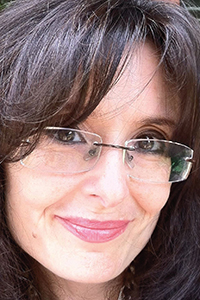Flowers: Afghanistan is a tragedy in many more ways than one
Published 1:29 pm Friday, August 20, 2021

- Christine Flowers
|
Getting your Trinity Audio player ready...
|
I’ve been practicing immigration law for over 25 years, and I speak four languages fluently. I’ve traveled widely outside of the United States, and lived abroad for large stretches in the 1980s and 1990s.
All of this is to say that I am devastated with what’s happening in Afghanistan.
Some readers will simply yawn and turn the page on this one. They’re more interested in being warriors against school boards than in hearing about the fall of Kabul. They’re focused on kids in masks as opposed to women wrapped in burqas. They are obsessed with women getting patted on the rear, and not women who are being stoned to death.
I get it, we all have our priorities.
But these days, my interests extend a little broader than to what’s going on in my own backyard, because that’s never been the boundary of my world.
I don’t want to make this political, although it’s difficult to avoid criticizing our current president for withdrawing our troops from Afghanistan. I won’t presume to be an expert in geopolitical issues beyond the impact they have on my asylum clients, and my depth of knowledge in the national security sphere is as shallow as a YouTube makeup star. But I can’t avoid the reality that until Joe Biden made the executive decision to draw down our presence with unexpected haste, the Taliban was relatively dormant.
They’re never inactive. They’re always terrorizing people like my Ph.D student from Peshawar, who was beaten as he returned home from vaccinating villagers against smallpox. They target folks like my elementary school teacher from the Swat Valley, bombing his building because he dared allow girls in his classes. They make examples of men like my cab driver from Islamabad, who made the mistake of delivering a Swedish journalist who’d written an expose about fundamentalist terrorism, to his hotel. For that service, “Nawaz” was shot at by masked men on a bike.
And these are just the ones over the border in Pakistan.
Now, with the vacuum created by this recent withdrawal, the Taliban in Afghanistan (as well as their Pakistani brothers of “Tehrik I Taliban”) have become emboldened. They are winning, and they know that they are winning, and we have left.
Years ago, my brother Michael was living and working in the Green Zone in Iraq, assisting in the prosecution of Saddam Hussein. He wrote home about the men and women who served as translators, people who risked their lives every day to serve the U.S. government. That government promised to protect them.
And they needed that protection. Those civilians in the Green Zone like my brother were living in one of the safest areas in the Middle East, an almost impenetrable fortress guarded by the most competent, fearless and resourceful troops in the world. The interpreters, on the other hand, lived in villages seeded with informers and terrorist sympathizers. Their families were at risk. They could not hide behind American artillery for their safety. And yet, they showed up every day, and did their jobs, and then squared their shoulders and walked home.
The same thing was happening in Afghanistan. And while our government has made some relatively feeble efforts to support these individuals, like creating a visa classification which would allow them to immigrate, very few have made it to the U.S. And of those who did get visas, the vast majority have left their families behind because of administrative red tape.
Biden has said that he wants to prioritize the removal of these brave men and women, and that’s all well and good for the cameras. But by drawing down the troops, he has helped fuel the onslaught of a terrorist organization that is stronger, more resilient and deadlier than ISIS, al-Qaida, or the many fundamentalist splinter groups around the world.
In the next months, I will be meeting with other asylum clients who are refugees from Taliban cruelty. I will do everything that I can to make sure that they, the lucky ones who made it out, don’t ever have to go back into the maelstrom. I may be successful, and I may not be.
But when I look into their eyes, I will see the others who are not there before me, the ones that stand behind them and who are still in that blighted place left open and vulnerable to the ravages of war and terror.
And I will be ashamed, knowing the reason for it.
Christine Flowers is an attorney and a columnist for the Philadelphia Daily News, and can be reached at cflowers1961@gmail.com.





